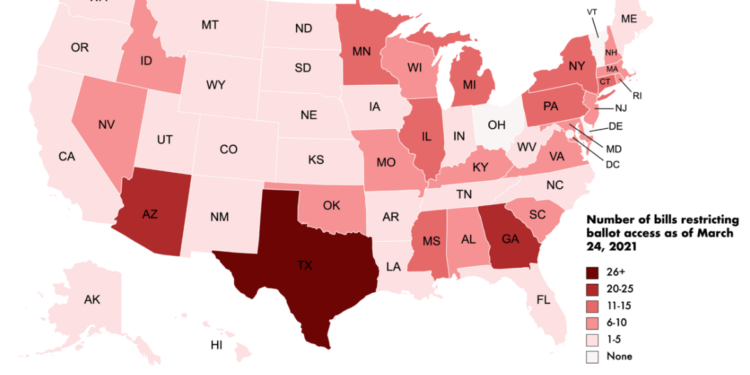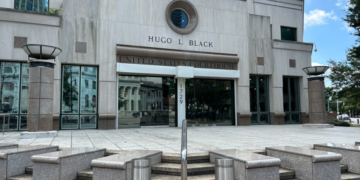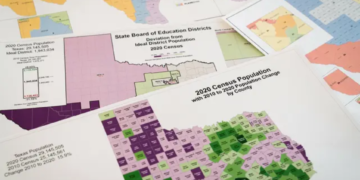Source: Brennan Center
Sep 13, 2024 Story by: Editor
A new analysis by the Brennan Center for Justice reveals that restrictive voting laws, enacted after the 2020 election, have been more common in Republican-controlled states with diverse populations.
Released on Wednesday, the Brennan Center’s report highlights that voter rights legislation limiting access to the polls has been introduced in all but one state since 2020, showing that the issue goes beyond just partisan politics, despite the increasing political polarization surrounding U.S. elections.
“It may be somewhat of a surprise to folks that this isn’t just a story about a party,” said Sean Morales-Doyle, director of the Brennan Center’s Voting Rights division. “[Voting rights have] become an incredibly polarized, political issue, and I think people are used to thinking about it as a partisan issue. But this study shows it’s not just party that is playing a role here. It’s about race as well.”
Researchers examined state legislative proposals in 2021, political demographics, and data from the 2020 Cooperative Election Study, a national survey conducted around U.S. elections. Their analysis explored the role of “racial resentment” — a political science term used to understand how race influences public opinion.
At the legislative district level, the study found, “representatives from the whitest districts in the most racially diverse states were the most likely to sponsor anti-voter bills.” At the state level, race and partisanship together were the strongest factors, with less diverse states being “unlikely” to introduce or pass restrictive voting laws regardless of political affiliation.
“We are not seeing these bills introduced and passed everywhere that Republicans have control; rather, they are most prevalent in states where they have control and where there are significant non-white populations,” the report notes. It adds that race and racial resentment have a greater influence on voting restrictions than partisanship alone.
| Source: FiveThirtyEight |
Republican leaders have argued that measures like voter ID laws and purging voting rolls are necessary to maintain election integrity, even though experts have found no evidence of widespread voter fraud in the U.S. For example, Tennessee officials highlight their efforts to ease voter registration and promote early voting access, despite the passage of some restrictions.
A 2021 USA Today analysis found that while some states expanded voting access post-2020, around 55 million eligible voters faced new laws limiting ballot access. These new laws cut absentee voting by over 160 days nationwide.
Former President Donald Trump’s unfounded claims that the 2020 election was rigged have fueled heightened political tension over voting rights. Even some former Trump officials and members of his family now admit the election was fair, yet conspiracy theories persist, influencing public opinion on U.S. elections.
According to the Brennan Center, racially diverse Republican states like Mississippi, South Carolina, Oklahoma, and Alaska saw more restrictive voting laws introduced than less diverse Republican states like Wyoming, North Dakota, Montana, and West Virginia. Morales-Doyle explained that while many may assume that all Republican-led states would enact such laws equally, race and attitudes toward diversity play a significant role.
The Brennan Center’s report does not attribute motives to individual legislators but instead illustrates how race and demographic changes are influencing policy. Morales-Doyle noted that voting restrictions often appear in states experiencing demographic shifts or increases in political activity among people of color.
“It is still true today that restrictions on voting rights often disproportionately impact voters of color,” Morales-Doyle said. Source: The Tennesean

















